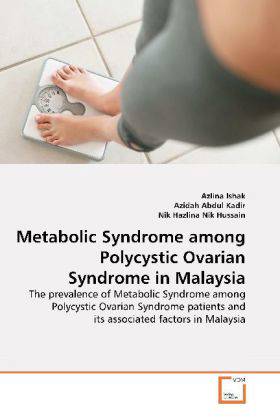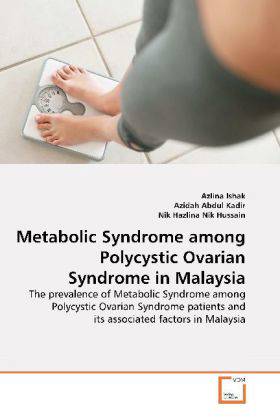
- Afhalen na 1 uur in een winkel met voorraad
- Gratis thuislevering in België vanaf € 30
- Ruim aanbod met 7 miljoen producten
- Afhalen na 1 uur in een winkel met voorraad
- Gratis thuislevering in België vanaf € 30
- Ruim aanbod met 7 miljoen producten
Zoeken
Metabolic Syndrome among Polycystic Ovarian Syndrome in Malaysia
The prevalence of Metabolic Syndrome among Polycystic Ovarian Syndrome patients and its associated factors in Malaysia
Azlina Ishak, Azidah Abdul Kadir, Nik Hazlina Nik Hussain
Paperback | Engels
€ 70,45
+ 140 punten
Omschrijving
Polycystic Ovarian Syndrome (PCOS) is an important health issue affecting reproductive women today. Apart from being the most common endocrinopathy, it is also one of the leading causes of infertility. Whilst, Metabolic Syndrome (MS) is a syndrome comprises of multiple risk factors that predispose someone to the risk of atherosclerotic cardiovascular disease and type 2 diabetes. Worldwide, there are many studies looking into the prevalence of Metabolic Syndrome (MS) either in general or in specific population. This study specifically looked on the prevalence of MS among Polycystic Ovarian Syndrome (PCOS). It also looked into the associated factors which determine the MS prevalence among PCOS population. It is a cross sectional study, involving 106 PCOS patients attending Gynaecology clinic. The diagnostic criteria used for MS was IDF 2005. The prevalence of MS among PCOS patients studied was 43.4%. Age and family history of Diabetes Mellitus are the two important determinant factors for MS.
Specificaties
Betrokkenen
- Auteur(s):
- Uitgeverij:
Inhoud
- Aantal bladzijden:
- 96
- Taal:
- Engels
Eigenschappen
- Productcode (EAN):
- 9783639379693
- Verschijningsdatum:
- 1/09/2011
- Uitvoering:
- Paperback
- Afmetingen:
- 152 mm x 220 mm
- Gewicht:
- 150 g

Alleen bij Standaard Boekhandel
+ 140 punten op je klantenkaart van Standaard Boekhandel
Beoordelingen
We publiceren alleen reviews die voldoen aan de voorwaarden voor reviews. Bekijk onze voorwaarden voor reviews.








